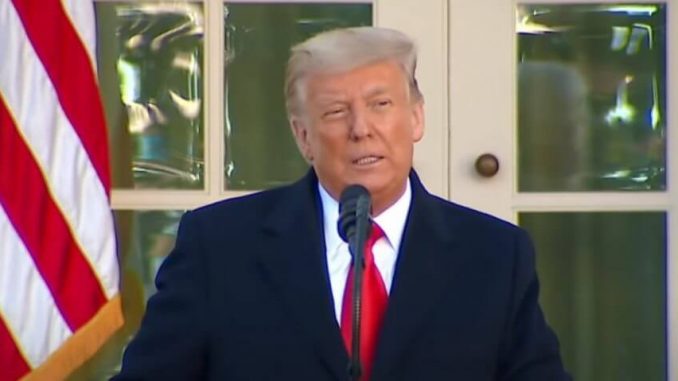
The divide within the Republican Party on the issue of the 2020 election has never been more stark, as at least 140 House Republicans are expected to oppose counting the presidential electoral votes on Jan. 6, according to a CNN report.
As the House will still maintain a Democratic majority, and it appears most Republican senators are not planning to object to certifying the election, it is not likely to alter the presumed Joe Biden victory.
.@JakeTapper quotes others saying 140+ House GOPers will vote against voter fraud, illegal ballots & election theft. For once, I hope #CNN & Jake Tapper are not #FakeNewsMedia! 140+ is a WHOLE LOT MORE than the ONE we started with the week of November 3rd. 😉 https://t.co/1YwLLTDaiK
— Mo Brooks (@RepMoBrooks) December 31, 2020
Numerous affidavits testifying to various types of election fraud have been filed in courts in several swing states.
These affidavits constitute evidence of fraud, but those allegations have yet to be proven by state courts, and the legal action remains ongoing.
This legal action motivated Sen. Josh Hawley to announce his objection to certifying the results, which will trigger a vote in both chambers of Congress.
As Business Insider reported, the Missouri Republican could be positioning himself for a 2024 presidential run — as any successful Republican candidate in the primaries will need some support from those who backed President Donald Trump.
“I cannot vote to certify the electoral college results on January 6 without raising the fact that some states, particularly Pennsylvania, failed to follow their own state election laws,” Hawley said in a statement posted to Twitter.
Millions of voters concerned about election integrity deserve to be heard. I will object on January 6 on their behalf pic.twitter.com/kTaaPPJGHE
— Josh Hawley (@HawleyMO) December 30, 2020
As the action does not have the support of Republican Senate Majority Leader Mitch McConnell, who already recognized Biden as the president-elect, it is not likely to gain nearly enough traction in the Senate.
"Many millions of us had hoped the presidential election would yield a different result. But our system of government has processes to determine who will be sworn in on Jan. 20," McConnell said https://t.co/PyGvwKqydN pic.twitter.com/zoISxy8x5S
— POLITICO (@politico) December 15, 2020
Nebraska Sen. Ben Sasse has been the most vocal Republican voicing opposition to the effort to keep fighting the apparent election results.
In a statement posted to Facebook, Sasse lambasted the Trump campaign’s legal effort.
“[T]here are serious penalties for misleading a judge, and the president’s lawyers know that — and thus they have repeated almost none of the claims of grand voter fraud that the campaign spokespeople are screaming at their most zealous supporters,” he said. “So, here’s the heart of this whole thing: this isn’t really a legal strategy — it’s a fundraising strategy.”
So if the effort is expected to fail, how come there is such a sizable opposition to certifying Joe Biden’s apparent win in the House?
For one thing, while California Rep. Kevin McCarthy is a great minority leader, he does not hold the same power and influence over decision-making in the House that McConnell does in the Senate, and is thus not as capable of keeping his caucus in line one way or the other.
(It’s worth noting that McCarthy has neither publicly denounced nor praised the House Republicans who reportedly plan to challenge the Electoral College vote certification.)
Moreover, many House Republicans who believe the election was unfairly stolen from the president have nothing to lose by taking such controversial action, as they either represent heavily Republican districts or banked on Trump’s energy to win.
Loyalty to Trump is currency in some conservatives circles, so taking a stand over the election results puts some in safe territory for their political future.
